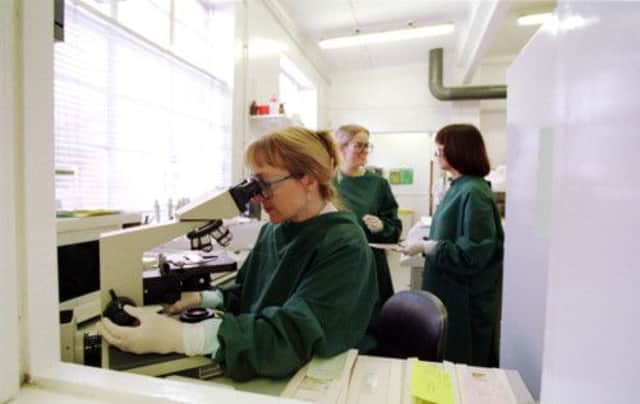MS treatment ‘a step closer to the Holy Grail’


The first human trials showed that the auto-immune reaction that causes the illness dropped by up to 75 per cent in patients undergoing the treatment.
In MS, the immune system attacks and destroys myelin – the insulating layer that forms around nerves in the spinal cord, brain and optic nerve. This means signals cannot be carried properly, leading to symptoms ranging from mild limb numbness to paralysis or blindness.
Advertisement
Hide AdAdvertisement
Hide AdThe therapy uses MS patients’ own processed white blood cells to deliver myelin antigens to the body. The immune system recognises the myelin as harmless and develops a tolerance.
A first phase clinical trial has shown that the therapy is safe and “dramatically reduced patients’ immune systems’ reactivity to myelin by 50-75 per cent”, say scientists from Northwestern Medicine research.
Professor Stephen Miller, of Northwestern University Feinberg School of Medicine, in Chicago, said: “The therapy stops auto-immune responses that are already activated and prevents the activation of new autoimmune cells. Our approach leaves the function of the normal immune system intact. That’s the Holy Grail.”
The human trial is the translation of more than 30 years of preclinical research in Prof Miller’s lab, reports journal Science Translational Medicine.
Current therapies for MS suppress the entire immune system, making patients more susceptible to everyday infections and higher rates of cancer. Researchers say the nine trial patients, who were treated in Hamburg, were too few a number to determine the treatment’s ability to prevent the progression of MS.
The study’s main aim was to test the therapy’s safety and tolerability. But they did find that patients who received the highest dose of white blood cells had the greatest reduction in myelin reactivity. The test also showed the intravenous injection of up to three billion white blood cells with myelin antigens caused no adverse affects in MS patients.
Most importantly, it did not reactivate the patients’ disease and did not affect their healthy immunity to real pathogens. As part of the study, researchers tested patients’ immunity to tetanus because all had received tetanus shots in their lifetime. One month after the treatment, their immune responses to tetanus remained strong, showing the treatment’s immune effect was specific only to myelin.
The next stage will be to see if the treatment can prevent the progression of MS in humans. Preclinical research has already demonstrated the treatment stopped the progression of relapsing-remitting MS in mice.
Advertisement
Hide AdAdvertisement
Hide AdScotland has one of the highest incidences of MS in the world. Prof Miller said: “In the phase two trial, we want to treat patients as early as possible in the disease before they have paralysis due to myelin damage. Once the myelin is destroyed, it’s hard to repair that.”